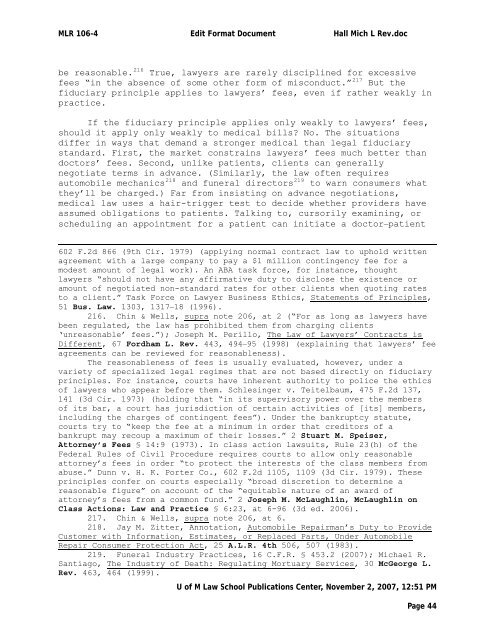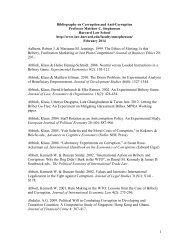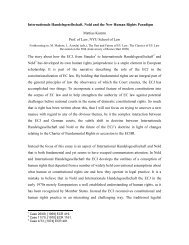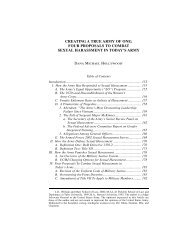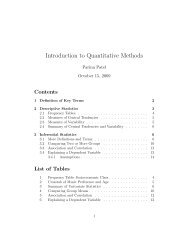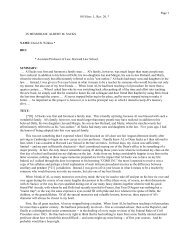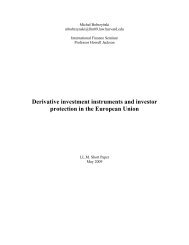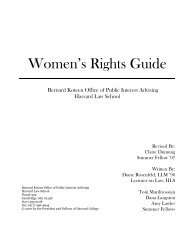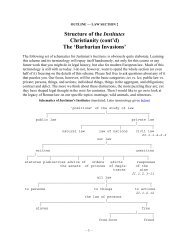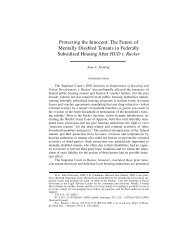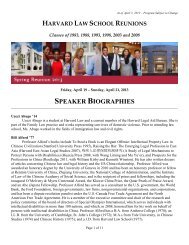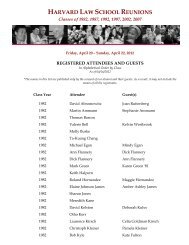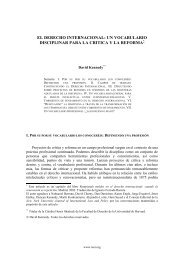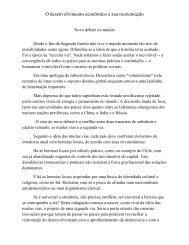Patients as Consumers - Harvard Law School
Patients as Consumers - Harvard Law School
Patients as Consumers - Harvard Law School
You also want an ePaper? Increase the reach of your titles
YUMPU automatically turns print PDFs into web optimized ePapers that Google loves.
MLR 106-4 Edit Format Document Hall Mich L Rev.doc<br />
be re<strong>as</strong>onable. 216 True, lawyers are rarely disciplined for excessive<br />
fees “in the absence of some other form of misconduct.” 217 But the<br />
fiduciary principle applies to lawyers’ fees, even if rather weakly in<br />
practice.<br />
If the fiduciary principle applies only weakly to lawyers’ fees,<br />
should it apply only weakly to medical bills? No. The situations<br />
differ in ways that demand a stronger medical than legal fiduciary<br />
standard. First, the market constrains lawyers’ fees much better than<br />
doctors’ fees. Second, unlike patients, clients can generally<br />
negotiate terms in advance. (Similarly, the law often requires<br />
automobile mechanics 218 and funeral directors 219 to warn consumers what<br />
they’ll be charged.) Far from insisting on advance negotiations,<br />
medical law uses a hair-trigger test to decide whether providers have<br />
<strong>as</strong>sumed obligations to patients. Talking to, cursorily examining, or<br />
scheduling an appointment for a patient can initiate a doctor–patient<br />
602 F.2d 866 (9th Cir. 1979) (applying normal contract law to uphold written<br />
agreement with a large company to pay a $1 million contingency fee for a<br />
modest amount of legal work). An ABA t<strong>as</strong>k force, for instance, thought<br />
lawyers “should not have any affirmative duty to disclose the existence or<br />
amount of negotiated non-standard rates for other clients when quoting rates<br />
to a client.” T<strong>as</strong>k Force on <strong>Law</strong>yer Business Ethics, Statements of Principles,<br />
51 Bus. <strong>Law</strong>. 1303, 1317–18 (1996).<br />
216. Chin & Wells, supra note 206, at 2 (“For <strong>as</strong> long <strong>as</strong> lawyers have<br />
been regulated, the law h<strong>as</strong> prohibited them from charging clients<br />
‘unre<strong>as</strong>onable’ fees.”); Joseph M. Perillo, The <strong>Law</strong> of <strong>Law</strong>yers’ Contracts is<br />
Different, 67 Fordham L. Rev. 443, 494–95 (1998) (explaining that lawyers’ fee<br />
agreements can be reviewed for re<strong>as</strong>onableness).<br />
The re<strong>as</strong>onableness of fees is usually evaluated, however, under a<br />
variety of specialized legal regimes that are not b<strong>as</strong>ed directly on fiduciary<br />
principles. For instance, courts have inherent authority to police the ethics<br />
of lawyers who appear before them. Schlesinger v. Teitelbaum, 475 F.2d 137,<br />
141 (3d Cir. 1973) (holding that “in its supervisory power over the members<br />
of its bar, a court h<strong>as</strong> jurisdiction of certain activities of [its] members,<br />
including the charges of contingent fees”). Under the bankruptcy statute,<br />
courts try to “keep the fee at a minimum in order that creditors of a<br />
bankrupt may recoup a maximum of their losses.” 2 Stuart M. Speiser,<br />
Attorney’s Fees § 14:9 (1973). In cl<strong>as</strong>s action lawsuits, Rule 23(h) of the<br />
Federal Rules of Civil Procedure requires courts to allow only re<strong>as</strong>onable<br />
attorney’s fees in order “to protect the interests of the cl<strong>as</strong>s members from<br />
abuse.” Dunn v. H. K. Porter Co., 602 F.2d 1105, 1109 (3d Cir. 1979). These<br />
principles confer on courts especially “broad discretion to determine a<br />
re<strong>as</strong>onable figure” on account of the “equitable nature of an award of<br />
attorney’s fees from a common fund.” 2 Joseph M. McLaughlin, McLaughlin on<br />
Cl<strong>as</strong>s Actions: <strong>Law</strong> and Practice § 6:23, at 6-96 (3d ed. 2006).<br />
217. Chin & Wells, supra note 206, at 6.<br />
218. Jay M. Zitter, Annotation, Automobile Repairman’s Duty to Provide<br />
Customer with Information, Estimates, or Replaced Parts, Under Automobile<br />
Repair Consumer Protection Act, 25 A.L.R. 4th 506, 507 (1983).<br />
219. Funeral Industry Practices, 16 C.F.R. § 453.2 (2007); Michael R.<br />
Santiago, The Industry of Death: Regulating Mortuary Services, 30 McGeorge L.<br />
Rev. 463, 464 (1999).<br />
U of M <strong>Law</strong> <strong>School</strong> Publications Center, November 2, 2007, 12:51 PM<br />
Page 44


